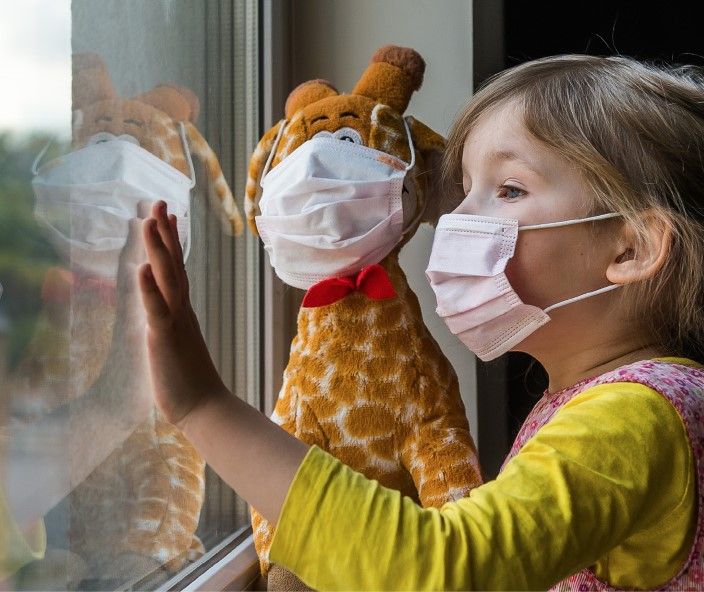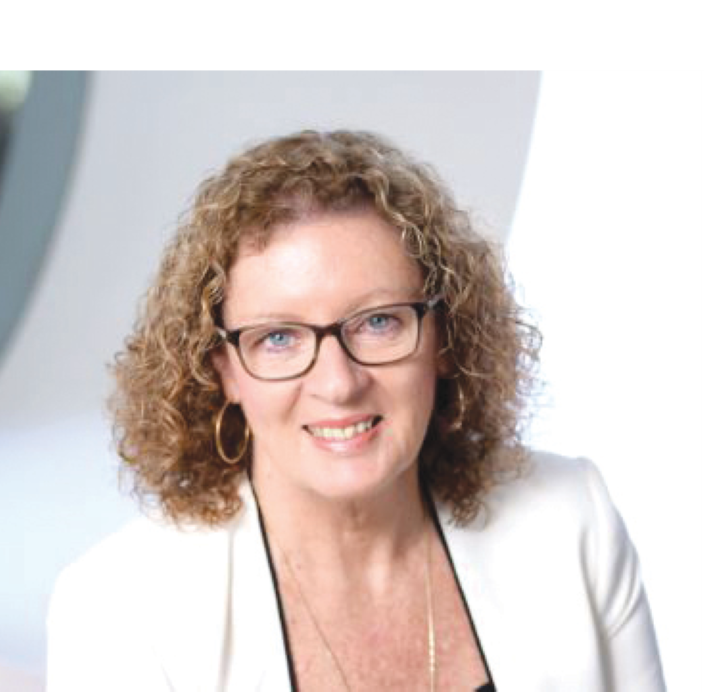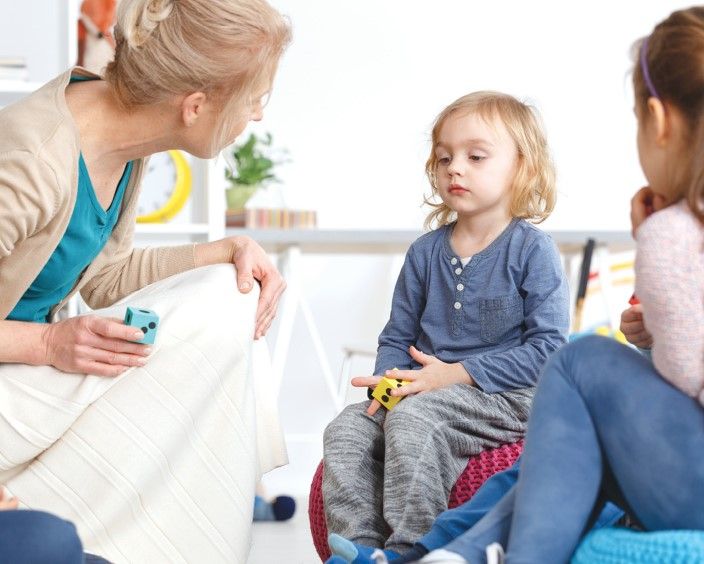
Australians have endured a tumultuous few years, with bushfires, floods and a global pandemic. Emily Campbell investigates how we ensure young children feel protected and safe amidst disruption, trauma and uncertainty.










































































































































Supporting young children during times of crisis
2022 May Bedrock


Australians have endured a tumultuous few years, with bushfires, floods and a global pandemic. Emily Campbell investigates how we ensure young children feel protected and safe amidst disruption, trauma and uncertainty.
Such events are difficult for grown adults to grapple with and disaster fatigue is widespread and ongoing.
Dr Judith Howard, a behaviour support specialist and Associate Professor at Queensland University of Technology (QUT) Faculty of Education, is a leader in trauma-aware education.
She said sudden changes to routine, fears about health and financial worries can cause anxiety for very young children, not just adults.
“Young children feel anxiety just like older children and adults, but often their main source of support to process this anxiety is through the adults with whom they are close,” Dr Howard said.
“Children of this age pick up on the emotional and anxiety-related signals from adults including teachers, parents, carers and others around them.
“This means if adults are physically or emotionally absent, young children will struggle to process difficult emotions on their own.
“If adults are expressing fear, emotional dysregulation or are not coping, it will be difficult for young children to process their emotions in a helpful and effective way.”
Being present
Dr Howard said when adults express unconditional care and support for young children and continue to be present and responsive despite the worrying circumstances surrounding them, children can cope far better.
“This is not an easy job for adults who have significant and valid reasons for feeling the emotions they are feeling,” she said.
“It takes a sincere effort to prioritise the support and wellbeing of young children, no matter what else is going on.
“We have seen recent examples of this in Ukraine, where isolated, harmed and terrified adults are holding, rocking, and playing with their little ones.
“These parents are experiencing an innate response to protect their young children from not only the very real physical harm of the war, but also the emotional harm associated with the terror of the war.”
Early interactions impact development
Dr Howard explained it is important to remember much of the rapid neural development from birth and throughout early childhood occurs as a response to interactions with adults such as caregivers and early childhood education teachers.
“This interactive process forms the foundation of human attachment, which develops and matures throughout life to assist with all relationships and to build resilience when tough times occur.
“However, when a child’s physical environment is frightening and their relational environment is non-supportive or harmful, there can be a tragic impact on the development and future functioning of the child’s nervous system and brain.”
Dr Howard said children can be negatively impacted if access to warm and supportive adult attention is unpredictable or absent.
“How early childhood education teachers and assistants engage with very young children who have experienced trauma is vital.
“Although this very rapid period of neural development leaves these children vulnerable to the impacts of trauma, there is also a wonderful window of opportunity for the work of early childhood education staff to help remediate this impact.”
Discussing difficult topics
Early childhood education teachers and assistants may be noticing emotional and behavioural changes in young children during stressful events.
Dr Howard said it is completely normal for children of kindergarten age to be inquisitive and have questions, because they are old enough to know something important is going on and that it is perhaps upsetting or worrying the adults around them.

According to Dr Howard, the best approach to answering children’s questions is to provide short and simple responses, then encourage them to move on and continue playing, learning and engaging in relationships.

“At this age, they do not need to know too much detail about the problem. That is the job of adults who are there to nurture and protect them,” Dr Howard said
“Simply put – you need to provide an honest response that is calmly delivered and that is backed up with reassuring comments that the harmful event will eventually cease and that the child is safe and cared for.
“Don’t dwell on any conversation about harmful events, but rather respond and then move on to activities that are enjoyable and somewhat distract the child from any concerns they might be experiencing.
“However, if the child’s experience includes grief and loss of a loved one, early childhood education staff need to provide the time and space for the child to be sad and to support them during this time.
“You can still include play, craft and activities during this time, but in a way that helps them to process their sadness.
“In some circumstances, children will need information that is important to keep them safe from harm, so adults need to consider what is the least harmful amount and type of information they can communicate to young children, to achieve this goal.”
Dr Howard said early childhood education teachers should limit children’s access to news coverage andscreen time online to prevent exposure to mature and confronting content.
“Early childhood education teachers need to consider the age or stage of development, because there’s no good reason to load the worries of the world on young children.”
Trauma experiences differ
According to Dr Howard, children, like adults, process the experience of trauma in very individual ways.
“One child might experience a minor event or hear about a disaster but not experience it directly, and this can still lead to them becoming terrified to the extent that it impacts on their wellbeing,” she said.
“Another child might experience a disaster directly, but it may not have such a devastating effect on their wellbeing.
“Early childhood education professionals should never assume a traumatic event will be experienced by individual children in the same way, or to the same degree.
“Rather, they need to take heed of how individual children are coping or not coping and respond accordingly.”
Dr Howard said what makes a difference is the quality and consistency of adult care and support surrounding the child.
“Children who lack this, or who are experiencing harm at home, may not have the capacity to cope with extra adversity, so it’s even more important early childhood education staff provide the secure base and safe haven these children need,” she said.
Importance of comfort and play
Anxiety can manifest differently in each child but there are some signs to look out for to identify children who are not coping.

“In simple terms, you need to look out for behaviours that fit into the ‘fight’, ‘flight’, or ‘freeze’ categories,”Dr Howard said.
“During severe emotional dysregulation, parts of the brain that manage these responses become very active.
“There is no one-size-fits-all approach to helping children experiencing anxiety because of current events,”Dr Howard said.
“However, there are three categories of strategies to consider and early childhood education staff can usetheir creative and professional judgement to do this.”
Those three categories are:
“For children who are experiencing anxiety, the importance of play cannot be underestimated, as the interactions between adults and children during play stimulates the biochemistry of attachment and important neural development.”
Helpful resources
There are many free resources which early childhood education staff can use to help children make sense of traumatic events and develop resilience.
Dr Howard said the Birdie’s Tree picture book series produced by Dr Andrea Baldwin from the Queensland Centre for Perinatal and Infant Mental Health, is a wonderful resource.
“The story books, therapeutic games, support materials and activities feature the recurring character Birdie and are effective tools for early childhood education staff to help young children work through scary experiences and big feelings.
“One of the best sources of information, science and helpful resources is the Harvard Centre on the Developing Child, which has developed a huge range of free resources to help parents and early childhood education professionals.”
Dr Howard believes employers should invest more in professional development (PD) so early childhood education staff can gain a thorough understanding of how trauma impacts children.
“Research is showing that training staff to understand what trauma is, how it impacts child development, and how to address this via the daily practice of staff, is a cost-effective and critical investment in children.
“Such training also can enhance the personal and professional wellbeing of the staff themselves, because they can feel confident in their work to develop early brains and nervous systems, which are the foundations for later schooling, health and wellbeing and life functioning.”